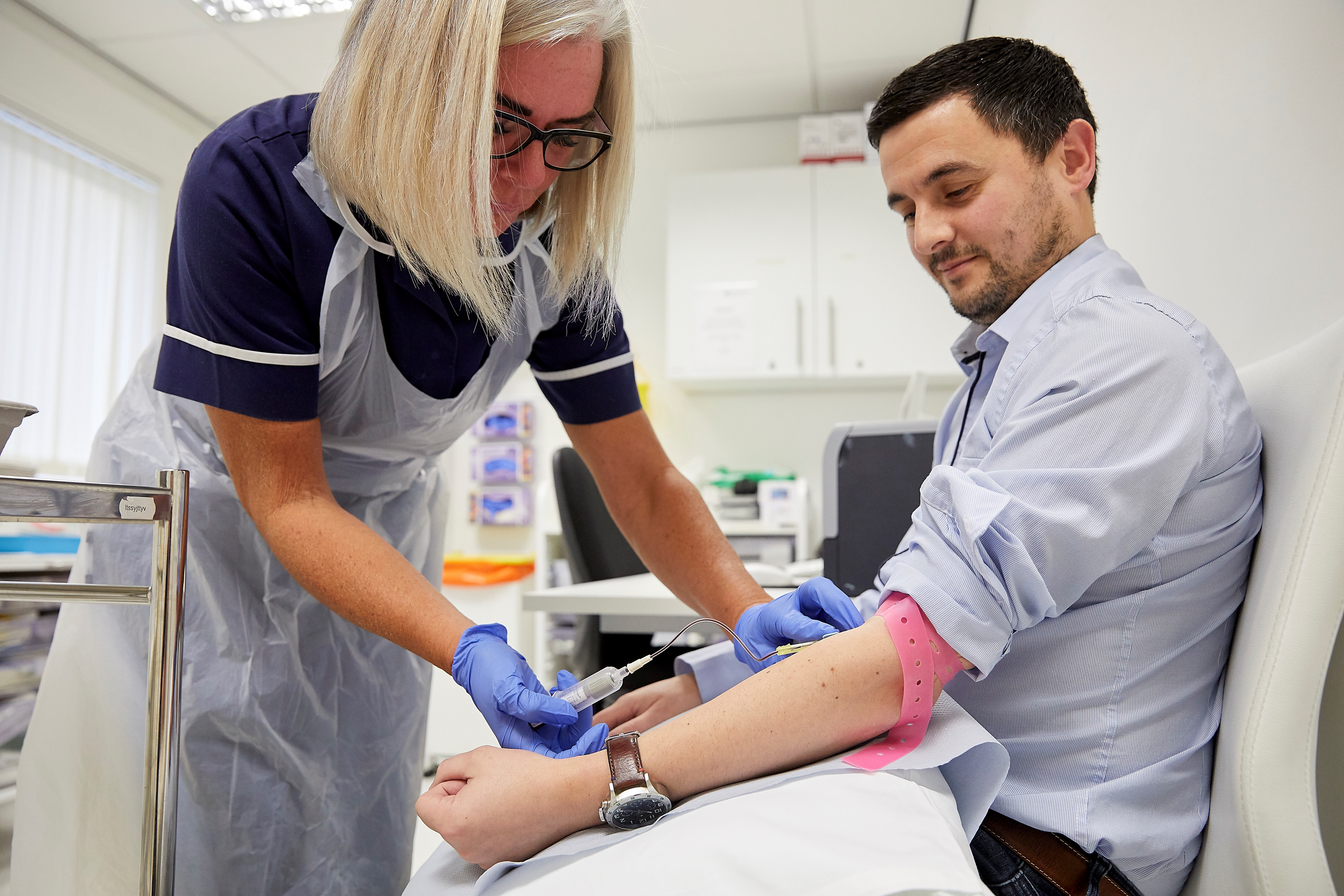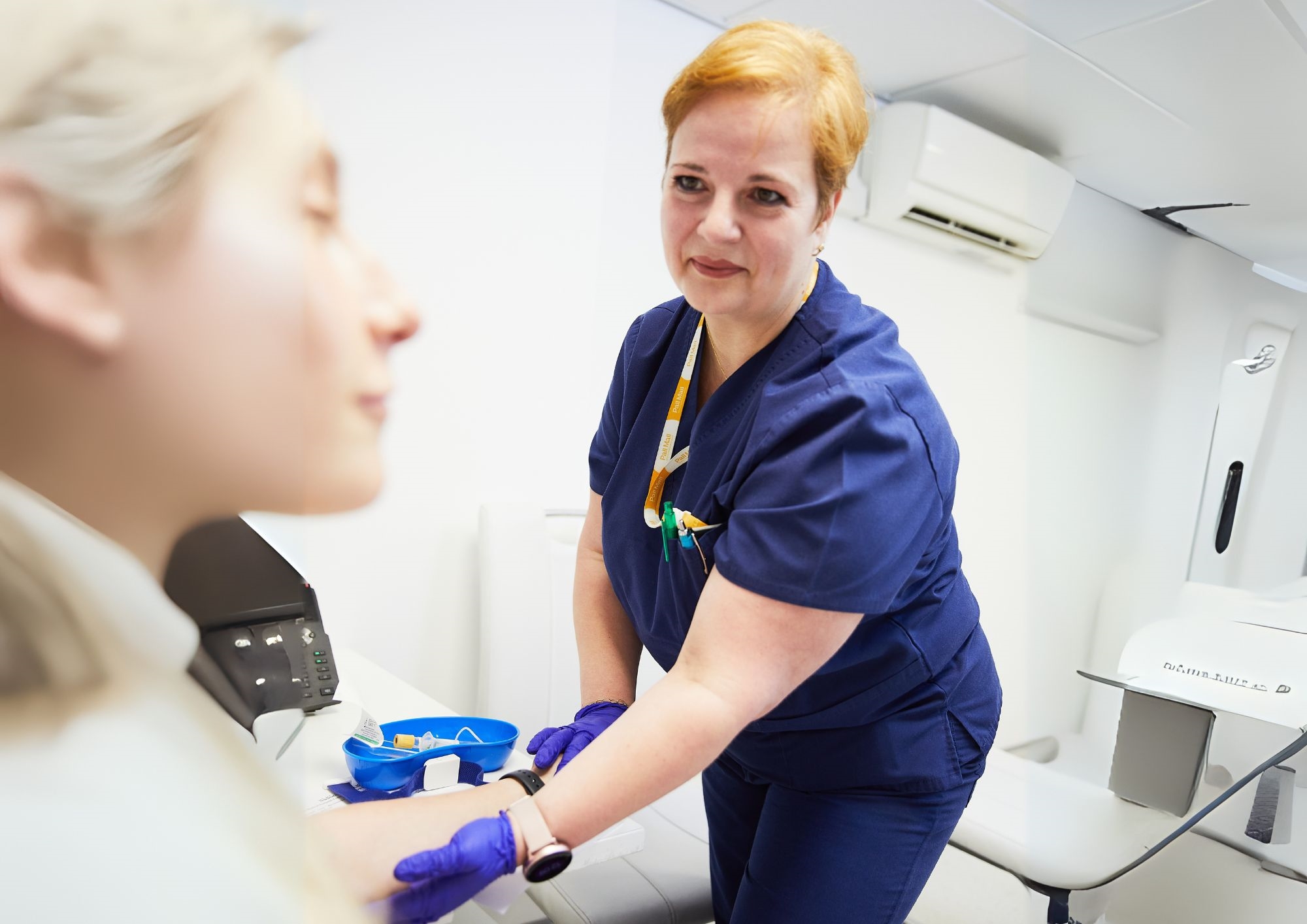A blood test is the best way to discover why you may be feeling unwell. By analysing your blood in different ways, we can gain insights into a wide range of medical conditions. This helps our GPs make an accurate diagnosis and develop an effective treatment plan.
At Pall Mall, you can make an appointment when it suits you. You can decide which tests you want, with advice from your private GP. And you’ll usually receive your results within 24 hours. You can have a blood test without a referral from your NHS doctor and if anything shows up that needs further investigation or treatment, we can arrange an appointment with one of our own specialist consultants if you choose.
Blood tests are carried out in our modern CQC (Care Quality Commission) registered clinics in Manchester, Liverpool & Newton-Le-Willows. You’ll be seen by a GP, nurse or trained practitioner, who will make sure you’re comfortable and put you at your ease. For some types of test, you can’t eat anything for 8 hours before your test. Our bookings team will tell you if that’s the case. Your blood test results are usually sent by email within 24 hours.


















